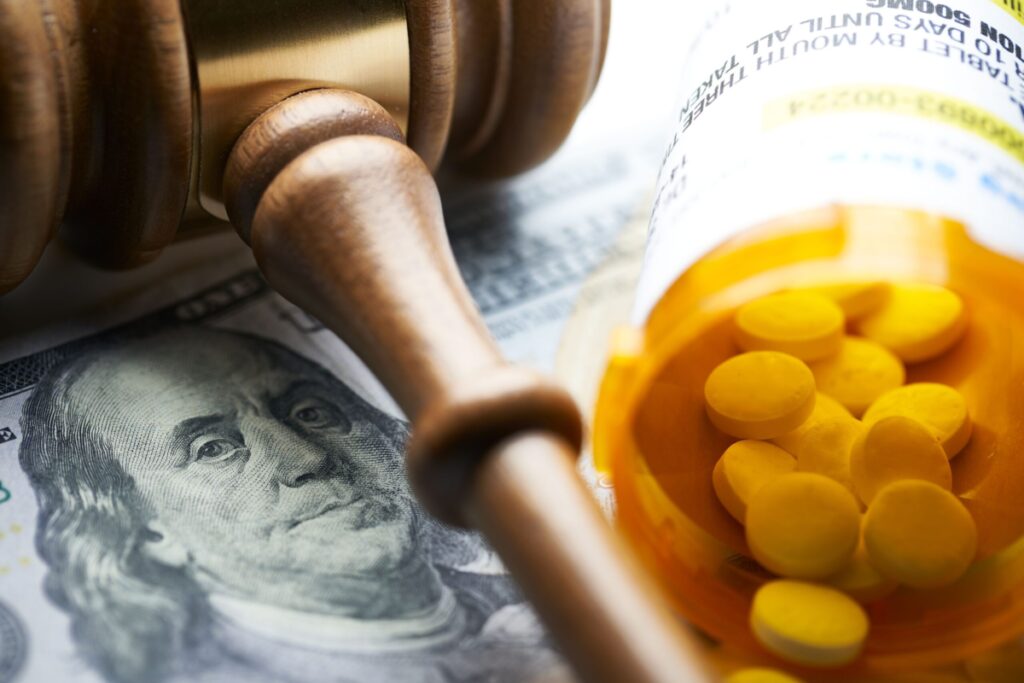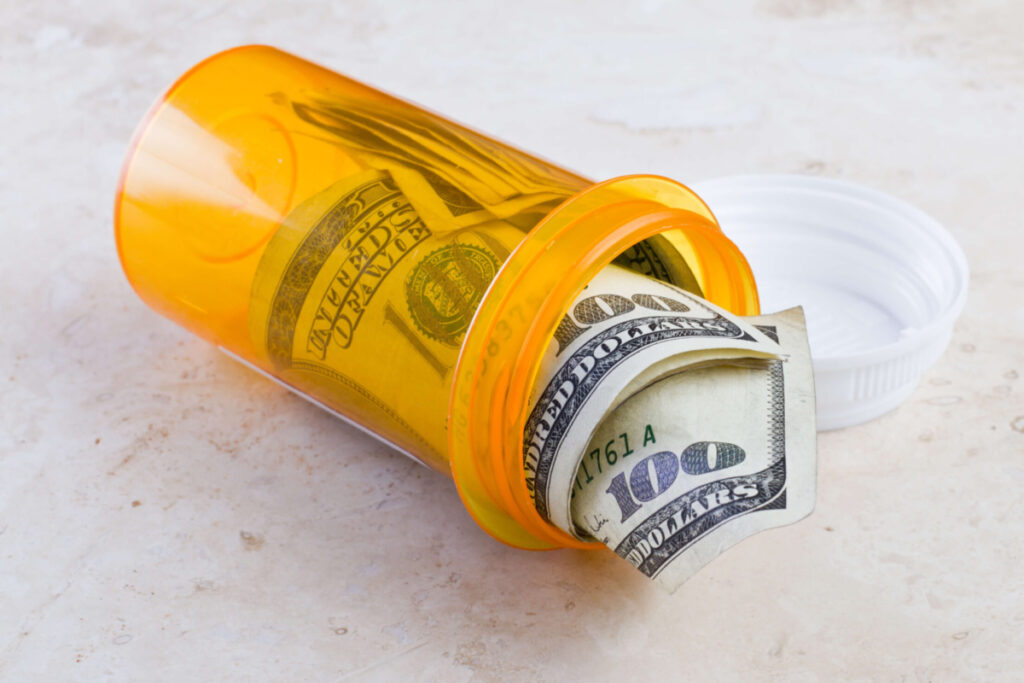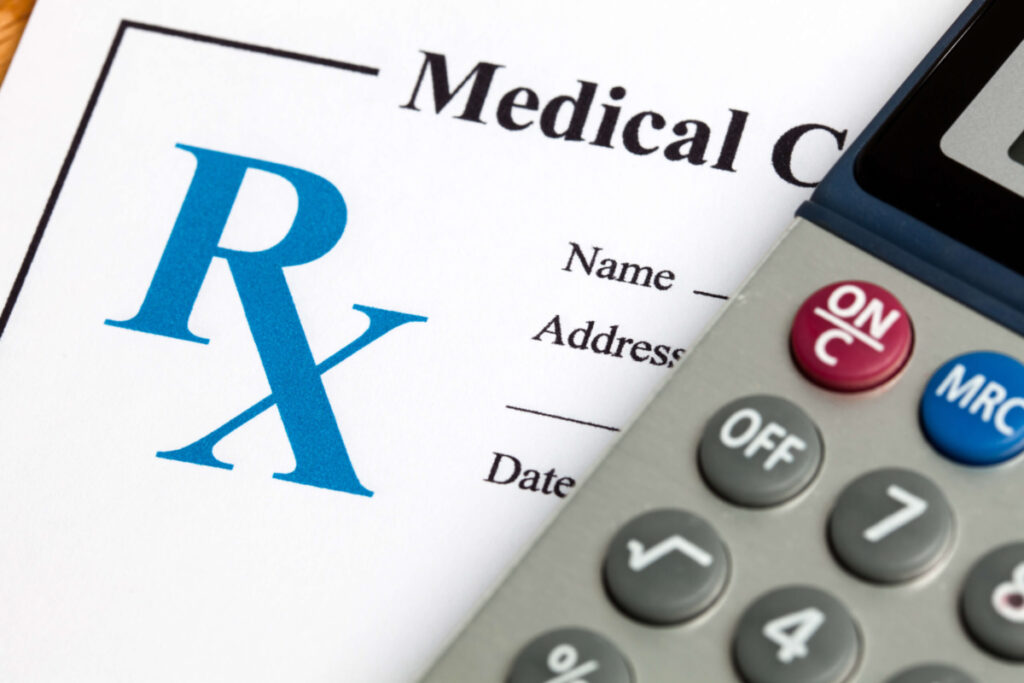A 2016 New Jersey law gave the state flexibility to share bid information submitted by all pharmacy benefit managers (PBMs) in order to incentivize the PBMs to submit lower offers in additional rounds of bidding – a process known as a reverse auction. While reverse auctions have been used historically to procure goods, New Jersey’s first-in-the-nation PBM model represents a new way states can procure services and save millions on prescription drug spending.
New Jersey’s approach, implemented in 2017, is now projected to save $2.5 billion in drug spending for its public employees between 2017 and 2022. These savings were achieved by forcing PBMs to make more competitive offers in new rounds of bidding without reducing drug benefits for the state’s 800,000 public employees.
Most states’ traditional PBM procurement process involves complex proposals containing pricing and terms that can make it difficult for a state to compare bids. The reverse auction procurement model requires all participating PBMs to offer the same contract terms and to compete on price only. A PBM’s participation in the auction is contingent on it agreeing to the terms of the proposed state drug benefit plan* — including formulary control, plan design, and member cost sharing. The winning bid is the least expensive offer with the following included:
A New Jersey official describes how the state implemented a reverse auction model in this webinar recording: How States Can Control Pharmacy Benefit Manager Contract Costs through Reverse Auctions.
The PBM’s requested administrative fees;
- Ingredient cost discounts;
- Rebates; and
- Other financial requirements as requested by the request for proposals (RFP).
An example of New Jersey’s 2019 RFP is available here.
To adopt a reverse auction PBM procurement model, a state may first contract with a vendor to conduct the reverse auction. Bidding is managed through a technology platform that enables each PBM to see how its bid compares with the highest bid in an anonymous fashion. States achieve savings by forcing PBMs to offer the same contract terms but at a lower price than in preliminary rounds of bidding.
New Jersey contracted with one vendor of a reverse auction technology platform to both conduct the reverse auction and oversee the contract to ensure compliance. The state’s request for quotations from vendors is available here. The state had expected to spend $8.3 billion on prescription drugs over three years by staying with its current PBM in a status quo contract. After two rounds of bidding, the state chose a new PBM with a three-year contract totaling $6.7 billion – generating a projected $1.6 billion savings in prescription drug costs for its State Health Benefits Program and School Employees’ Health Benefits Program (SEHP/SEHBP). Traditional PBM procurement typically takes six months, but New Jersey’s reverse auction PBM selection process took less than two months.
During the first nine months of the contract, pharmacy costs for New Jersey and its local governments declined by up to 25 percent. Premiums for Plan Year 2019 decreased by 1.1 percent, compared to the 13 percent cost increase during the previous plan year.
Shortly after completion of New Jersey’s first PBM procurement under a reverse auction, a losing PBM bidder challenged the state’s decision on the grounds that the contract’s terms provided the winning PBM with an unfair competitive advantage. The challenger won a partial victory when the court’s decision caused early termination of the first PBM contract in 2019. New Jersey conducted a second, three-round reverse auction resulting in a new three-year contract with the same PBM, resulting in an additional $485 million in expected savings.
New Jersey also used its reverse auction technology vendor to conduct PBM oversight to ensure contract compliance, which revealed an additional savings of $45.9 million in claim processing issues over an 18-month period.
Several other states have followed New Jersey’s lead. In May 2020, Maryland approved legislation to conduct reverse auctions for PBM procurement. The state expects savings on prescription drug coverage for its State Employee and Retiree Health and Welfare Benefits Program as early as Fiscal Year 2021, but the bill’s net fiscal impact on state expenditures is unknown at this time.
The New Hampshire State Senate has passed similar legislation, but the state’s House of Representatives suspended consideration of the bill in late June 2020. Despite the state’s smaller population compared to New Jersey’s, a study conducted by the Josiah Bartlett Center for Public Policy estimates that New Hampshire could save between $42.5 million and $53.1 million over the life of a three-year PBM contract procured through this model, compared to the state’s current $212.5 million PBM contract.
The National Academy for State Health Policy recently hosted a webinar about the state procurement of PBM’s through reverse auctions. For those interested in learning more about the model, a recording of the webinar can be found here.
* The National Academy for State Health Policy has created model PBM contract language for states and other public purchasers working to rein in drug costs to include in their contracts with PBMs.



